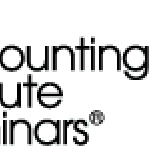- Industry: Accounting
- Number of terms: 7464
- Number of blossaries: 0
- Company Profile:
A deliberate deception to secure unfair or unlawful gain. False representation intended to deceive relied on by another to that person's injury. Fraud includes fraudulent financial reporting undertaken to render financial statements misleading, sometimes called management fraud, and misappropriation of assets, sometimes called defalcations.
Industry:Accounting
Policies and procedures to assure proper operation of computer systems, including controls over data center and network operations, software acquisition and maintenance, and access security.
Industry:Accounting
A book of original entry in a double-entry system. The journal lists transactions and indicates accounts to which they are posted. The general journal includes all transactions not included in specialized journals used for cash receipts, cash disbursements, and other common transactions.
Industry:Accounting
A record to which monetary transactions are posted (in the form of debits and credits) from a journal. It is the final record from which financial statements are prepared. General ledger accounts are often control accounts that report totals of details included in subsidiary ledgers.
Industry:Accounting
In the ten U.S. generally accepted auditing standards there are three general standards: 1. The examination is to be performed by a person or persons having adequate technical training and proficiency as an auditor. 2. In all matters relating to the assignment, an independence in mental attitude is to be maintained by the auditor. 3. Due professional care is to be exercised in performing the examination and preparation of the report.
Industry:Accounting
Packaged computer programs used on a variety of computers during audit field work to read computer files, select information, perform calculations, create data files, and print reports in a format specified by the auditor.
Industry:Accounting
Assuming the company will continue in operation long enough to realize its investment in assets through operations (as opposed to sale). Presenting assets at historical cost is justified by assuming productive assets will be used rather than sold. This makes market values irrelevant and supports accounting methods that match the actual cost of an asset to periods benefited.
Industry:Accounting
The gross margin from an income statement divided by net sales revenue.
Industry:Accounting
A printed copy of information as opposed to information stored in computer readable form.
Industry:Accounting
A computer and associated physical equipment involved in data processing or communications functions as opposed to software (the computer programs that provide instructions the computer follows).
Industry:Accounting
